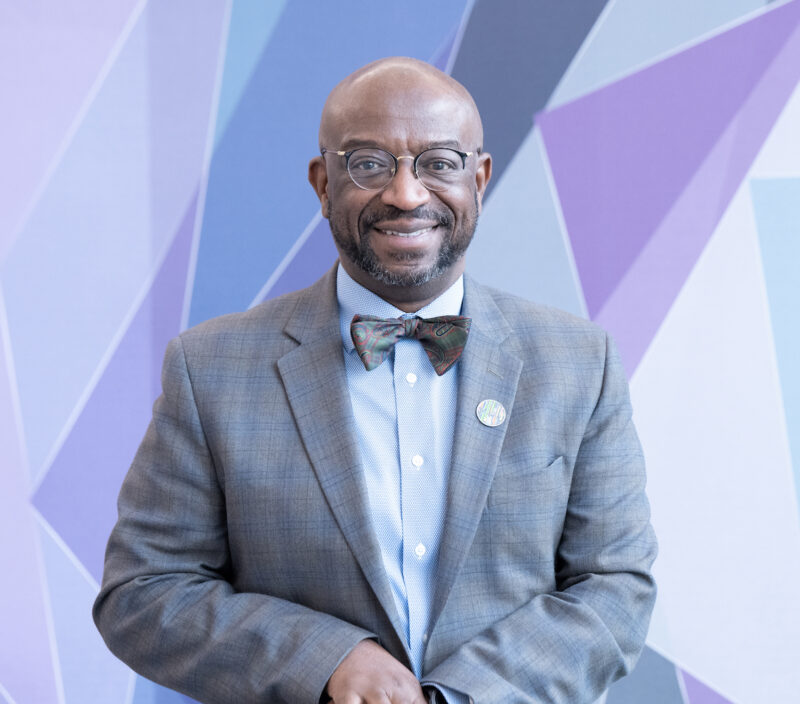
Dr. Michael Forbes, Akron Children’s chief academic officer and the William H. and Rebecca D. Considine Endowed Chair for Pediatric Research
As Akron Children’s chief academic officer and the William H. and Rebecca D. Considine Endowed Chair for Pediatric Research, Dr. Michael Forbes spends a lot of time thinking about our obligation to the children we serve.
“Akron Children’s is responsible for the public health of children. That is the ultimate report card of the effectiveness of our pediatric health care system,” he said. “If northeast Ohio is unhealthy, it can have far-reaching effects on our community. It all starts in childhood. To be successful, we must facilitate the development of children who are fully engaged in their families and fully engaged in their community.”
Dr. Forbes recognizes that when you consider the numerous challenges that impact pediatric public health – from obesity and behavioral health to addiction and infant mortality, it can become overwhelming.
“That is why we cannot do it alone,” he said.
That’s also why the context for our pediatric research activities must encompass social determinants of health that impact health care access, equity and outcomes.
In developing the strategic plan for academics at Akon Children’s, Dr. Forbes noted that the university definition of academics includes research, teaching and service. However, health care includes a fourth element – implementation for improvement.
He recently shared his vision for academics and pediatric research at our hospital, which includes:
Establishing a leadership position in translational science
“As a hospital, we are not a basic science research facility. Our strength lies in taking science off the shelf, including basic and pre-clinical research, and implementing that scientific knowledge to improve health outcomes,” he said. “Our efforts will focus on clinical trials, clinical implementation and pediatric public health. We have to own the pediatric health space in order to make an impact.”
Dr. Forbes pointed to the 400+ research projects that are currently underway at Akon Children’s, many of which are clinical trials for the treatment of neurological conditions and pediatric cancers. As a member of the Children’s Oncology Group, the world’s largest organization devoted to pediatric cancer research, we are able to offer the latest advances in treatment. Childhood cancer, once an incurable disease, now has a combined five-year survival rate of 80%.
As another example, our Akron Children’s Pediatrics network, which last year had more than half a million visits, represents a huge opportunity to leverage translational science in how we deliver pediatric primary care.
Elevating our academic profile
Increasing our collaborations and expanding our relationships with regional academic partners, such as Northeast Ohio Medical University and other academic institutions across the region and throughout the state, will play an important role in elevating our academic profile. We are also recruiting more pediatric physician-scientists and creating legendary learning experiences for faculty, residents and fellows. In order to optimize the administration and conduct of pediatric research, our structure will include:
- Research operations team
- Clinical trials team
- Statistical and computational scientists team
- Research compliance and integrity team
- Research-focused teams to address specific issues or specialty areas, working with our regional academic partners
- Research incubators for professional development and strategic recruitment
- Research navigators, such as research scientists, coordinators and nurses
Training future pediatric physician-scientists
Akron Children’s offers 13 fellowship programs and an outstanding pediatric residency program that provides unique experiences, with a first-time pediatric boards pass rate that exceeds the national average. We also provide pediatric training to nearly 800 residents and fellows from 29 other institutions annually.
“While not every pediatric resident or fellow wants to be researcher, for those who do, we will offer expanded opportunities for academic growth with research tracks and scholarships,” Dr. Forbes said.
As he sets the stage for enhancing academics at Akron Children’s, Dr. Forbes acknowledges the challenge and the opportunity that lie ahead.
“The National Institute of Health spends a lot of time, money and effort in advancing scientific knowledge, but that knowledge is not improving public health. As a hospital dedicated to pediatric public health, we have an opportunity to be a leader in applying that science to improve patient outcomes and the health of the children in our community,” he said.










